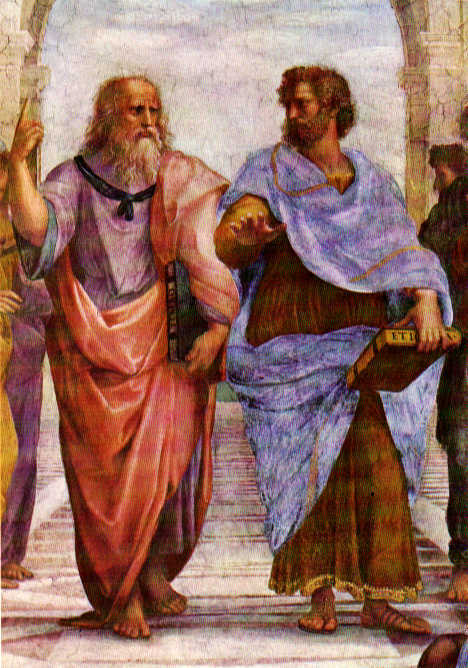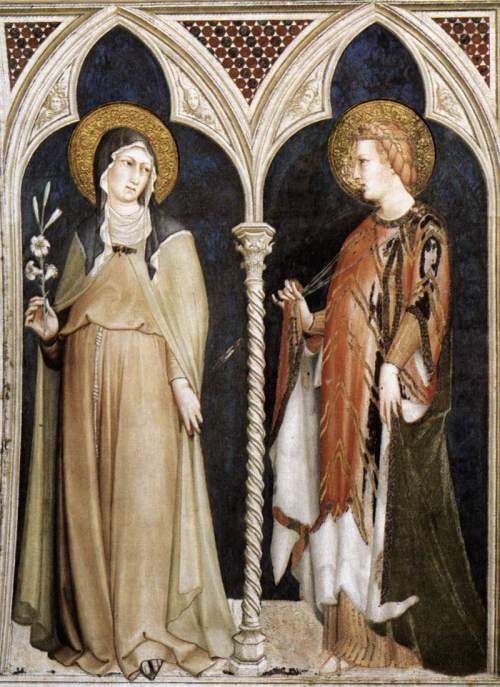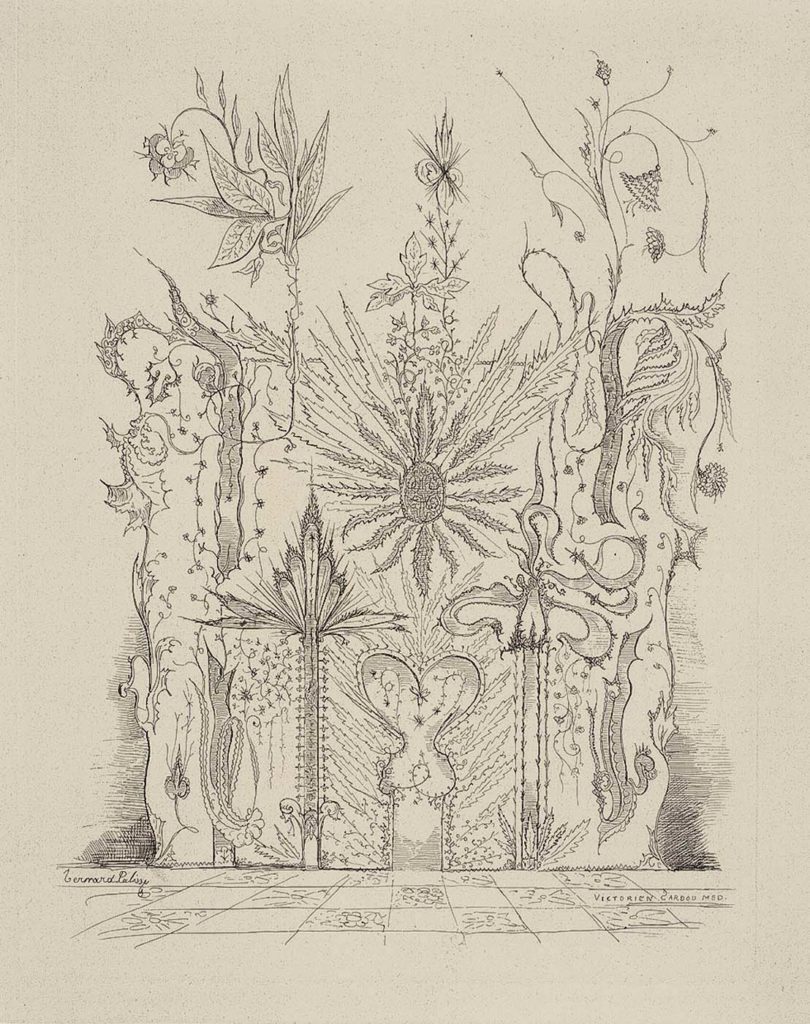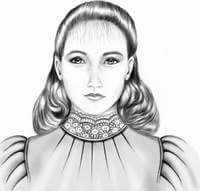Today, October 3, is the birth anniversary of Allan Kardec – Hypolite Leon Denizard Rivail¹, his registered name – and, as we understand his fundamental role in the study of the Doctrine of the Spirits, which he called Spiritism, we are going to address a very important subject, which, for those who study Kardec’s works, may even sound puerile, unimportant: the “Spiritism without Spirits”.
Now, it will not be rare for someone who has already heard the most diverse statements or who is aware of the widespread thought that we should not disturb the spirits by evoking them. Many are based on the well-known phrase by Chico Xavier, “the phone rings from there to here”, attributing to it a distorted understanding and making it a stony clause in the mediumistic code: “we cannot evoke them. We must wait for them to look for us.” There is nothing further from the truth and even from the purpose of Spiritism.
Noteworthy, Chico's phrase can be interpreted as follows: “we can evoke them, but it depends on them, not on us, whether they will respond or not”. Furthermore, we need to remember that Chico was constantly surrounded by thousands of people in search of a message from their deceased loved ones. Chico could not guarantee that he could attend to all of them, being led to say, in my own words: “Brothers, I am just an intermediary and I cannot, by myself, attend to everyone. Therefore, I place myself at their disposal, allowing their communications, as the good spirits judge best”.
This opinion, however, that we should not evoke the Spirits, comes from very far away and, in fact, was very pleasant to those who, after Kardec, did not want that the method of universal agreement of the teachings of the Spirits remained standing, since it would put down their personal opinions. This is well known.
Allan Kardec, in the Spiritist Magazine of January 1866, in an article with the same title as ours, makes the following observation:
Let us now examine the matter from another point of view. Who made Spiritism? Is it a personal human conception? Everyone knows otherwise. Spiritism is the result of the teaching of the Spirits, in such a way that without the communications of the Spirits there would be no Spiritism. If the Spiritist Doctrine were a simple philosophical theory born of a human brain, it would only have the value of a personal opinion; coming from the universality of the teaching of the Spirits, it has the value of a collective work, and that is why in such a short time it has spread throughout the Earth, each one receiving for himself, or for his intimate relationships, identical instructions and the proof of the reality of the demonstrations.
And he goes on, criticizing the enemies of the Doctrine who, because they see in the universality of the teaching of the Spirits, a great enemy to his own ideas:
Well then! It is in the presence of this patent, material result that attempts are made to build into a system the uselessness of the communications of the Spirits. Let's agree that if they didn't have the popularity they acquired, they wouldn't attack them, and that it is the prodigious vulgarization of these ideas that raises so many opponents to Spiritism. Don't those who reject communications today look like those ungrateful children who deny and despise their parents? Is it not ingratitude towards the spirits, to whom they owe what they know?
Where the Spiritist Movement took a detour
After Kardec, as we already know, the Spiritist Movement suffered a huge deviation, practically putting the Lyonnais master and his method of study into oblivion. After that, when he arrived in Brazil, the Movement was already quite altered in its bases, forgetting that Spiritism without Spirits is just a system of personal ideas, ideas that proliferated among Spiritists for more than a century.
Roustaing, one of the first major opponents of Spiritism, a contemporary of Kardec, moved by enormous vanity, mainly through Pierre-Gaëtan Leymarie, inserted his contents in the spiritist environment which, if it were not enough to be contrary to the Spiritist Doctrine in many points, were obtained through of one Spirit--that is, no universality of teachings. If they had encouraged such a method, they would see such theories denied by the Spirits themselves, which would not be interesting to the personal vanity of the “chosen one”.
Astonished, I discovered recently that the FEB itself, at the beginning of the 20th century, defended Roustangist ideas as a complement to Allan Kardec:
And it was to understand its preponderant usefulness [of the Gospel] that the Federation instituted its study in the sessions on Tuesdays, preferring it to the Gospel according to Spiritism [by Allan Kardec], which only contains the moral teachings, The Four Gospels (Revelation of Revelation), dictations to J.-B. Roustaing, because this revelation is complete, containing not only the development of those teachings, but the explanation of all the acts of Jesus' life, with a new and enlightening orientation about nature and his messianic mission.
(FEB, 1902, p. 1)
We see, therefore, since when such harmful ideas have infiltrated Spiritism, especially in Brazil, where several mediums – not questioning their purposes and values – started to be taken as oracles or prophets - again, nothing universality of teachings.
But do we need it today?
Many, however, will say: this method of Kardec, based in evocations, it was only useful for the birth of Spiritism. Today, we don't need that anymore, because we already have a lot of content that serves as a teaching base.
Yes, unquestionably we have so much foundation of moral teaching today that, if we really understood them, we would be light years ahead in our spiritual evolution. However, it was not the same with the teachings of Christ who, even so, sent us the Promised Comforter – The Doctrine of the Spirits. Why? Because the Spirit advances first in intellectuality, to only later advance in morality. How, then, to reduce this distance? Only through the union of faith and science. And that was Kardec's mission, so well accomplished in the study of the Doctrine of Spirits.
Now, we cannot forget: Spiritism is a science moral and philosophical aspect, born of study and observation of the spiritist manifestations, obtaining, from them, the knowledge, based on the universality of the teachings of the Spirits – that is, the distribution of the teachings of the Spirits everywhere, obtaining, from these teachings, the agreement, under the light of reason. We thus arrive at a conclusion:
To remove the evocations from Spiritism is to remove its main characteristic: that of a science that, as Kardec has always demonstrated and defended, should go hand in hand with human science.
So, we are forced to note, too, that evocations, with a serious purpose, are still necessary and, perhaps, always will be. Or do we already know everything about our relationships with Spirits and the world of Spirits? Or has the advancement of human science not brought, on the one hand, so many confirmations and, on the other, new doubts, regarding these relationships and our spiritual nature? Or is it that the mystifications did not start to flood the Spiritist Movement?
Let's see, regarding the last question, the thoughts of Cláudio Bueno da Silva on the portal O Consolador:
When talking about mystification, about deviations from the route of the spiritist movement, it is impossible not to mention the famous and traumatic “isms”, which caused so many controversies: Ubaldismo, by Pietro Ubaldi; Ramatisism, by Ramatis; Roustainguismo, by JB Roustaing; Edgar Armond's Armondism; Divinism, by Oswaldo Polidoro, and other “isms”. All of them with a curious characteristic: in the midst of truths, many misconceptions that differ from the Spiritist Revelation, codified by Allan Kardec. Although some of these propositions did not really arise within the spiritist movement, they infiltrated it, leaving remnants that still persist in many centers and federations across the country.
But the onslaught of shadows don't stop. Some time ago, many spiritist houses were “invaded” by the theory of indigo children, an imported version about the reincarnation of many intelligent “little angels”, full of independence and malice, but also full of rebelliousness and aggressiveness who, according to the fantasy of their North American “creators”, have the mission of renewing (?) the Earth . Many spiritists were delighted with the news and for a long time there was nothing else to talk about inside the spiritist house.
CLÁUDIO BUENO DA SILVA – http://www.oconsolador.com.br/ano6/285/claudio_bueno.html
The Spirits themselves defend our communication with them
The reading and study of Allan Kardec's work demonstrates to us, without ceasing, that the Spirits come willingly, whenever possible, to respond to the evocations carried out. When kind or wise spirits are happy to transmit good teachings; when Spirits, still inferior, find relief in exposing their difficulties or in transmitting some word of comfort to their relatives. At other times, as permitted, they convey important advice, as we can see in the article “Mama, Here I Am”, by RE of January 1858:
Julia: Mother, why do you grieve? I'm happy, very happy. I don't suffer anymore and I always see you.
The mother: But I do not see you! Where are you?
Julia: Here beside you, with my hand on Mrs. X (the medium) to write down what I say. See my handwriting (the handwriting was really the girl's).
The mother: You say: my hand. So you have a body?
Julia: I no longer have the body that made me suffer so much, but I have your appearance. Aren't you happy because I don't suffer anymore and because I can talk to you?
The mother: If I saw you, would I recognize you then?
Julia: Yes No doubt; and you have seen me many times in your dreams.
The mother: I really saw you in my dreams, but I thought it was a figment of the imagination, a memory.
Julia: Do not. It is I myself who am always with you and I try to comfort you; I was the one who inspired you with the idea of evoking me. I have many things to tell you. Distrust Mr. Z… He is not sincere.
(This gentleman, known only to the mother, mentioned spontaneously, was a new proof of the identity of the Spirit who manifested.)
The mother: What can Mr. Z?
Julia: I can't tell you. This is forbidden to me. I can only warn you to be suspicious of him.
We need, therefore, to remember that mediumship serves exactly this purpose: exchange between the “two planes”. If it were not so, God would not give us this ability. Yes, it is a fact that we must try to walk with our own feet, without giving in to the urge to ask the Spirits about everything. But it is also a fact that, with seriousness and good purpose, they have much to help us, both in personal matters and in matters of general importance. And this, by the way, they do constantly, through our intuition.
But then, if we think we need clearer communications, what can we do? Live in doubt?
I think that we need to think very carefully about this in order to really not to occupy mediums and spirits with something that we ourselves can understand or do, including steeped in the teachings already existing in Spiritism. We should act like the student who, before asking silly questions, should always research the already existing knowledge, otherwise he could even be scolded by the teacher: “you didn't study carefully. The knowledge is there; go back and reread”.
For the rest, if there is serious purpose, they will answer us within the limits allowed. If, on the other hand, there is no serious purpose, the good spirits will be able to give us a good ear tug, in the best of cases; in others, malicious spirits may respond, with the intention of causing us difficulties and deviations, or just making fun of us.
Conclusion
Being a memorable date, in short, in the life of this Spirit that we know as Allan Kardec, we need, in recognizing his work so well done and so dedicated, to recover the real history of Spiritism, restoring its essence and removing the obstacles that took such a large part of it.
Spiritism without Spirits, that is, Spiritism without universal agreement of the teachings of the Spirits and therefore without the Wow search for communication with them is not Spiritism: it is just personal opinion.
- Among Allan Kardec's own handwritten papers is an autobiographical sketch in which he corrects his first name, normally spelled Hippolyte, to the true spelling Hypolite. Canuto Abreu made considerations in an article, which can be accessed at https://espirito.org.br/autonomia/allan-kardec-data-e-nome. as well as Kardec's manuscript. Also the year of his birth was corrected in that same document, having been born in 1803 and not in 1804 as later biographies wrongly recorded. [Paulo Henrique de Figueiredo- Autonomy: the untold story of Spiritism]




